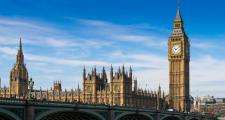Mental Health Bill approaches its final stages

A refreshed, modern Mental Health Act for England and Wales was a priority ask in BASW’s manifesto for social work ahead of last year’s General Election.
The fact that the incoming government not only agreed to our request but took it upon themselves to get the legislation moving as quickly as possible, was very welcome.
When setting out their reforms to parliament last November, the government insisted that they would improve treatment of patients and address disparities. This included:
- Introducing statutory care and treatment plans
- Removing the use of police and prison cells as places of safety
- Adding statutory weight to patient’s rights to be involved in planning for their care and choices about treatment
- Increasing the scrutiny of detention to ensure it’s only used when necessary and only for as long as necessary
- Ending the use of inappropriate detention of autistic people and people with learning disabilities
You can read a summary of the publication here and BASW’s reaction to the announcement here.
Since then, the Bill has been progressing through Westminster’s stringent law-making process, where it has undergone changes and additions. It started in the House of Lords in the autumn before MPs took the reins in the spring.
In partnership with ADASS and through regular engagement with the AMHP Leads Network, we have sought to strengthen the Bill’s measures throughout its parliamentary journey, advocating to MPs, Peers, Civil Servants and Ministers for improvements that will benefit both professionals and patients.
So, what have we achieved?
Well, quite a lot. Ranging from specific changes in the Bill itself to commitments and undertakings from Ministers for further consideration outside of legislation. We’ve produced a summary below.
- Early intervention to prevent mental health crises
While we welcome much of the Bill, we felt there was a lack of focus around early intervention and prevention measures. We therefore proposed a new clause placing a duty on local authorities and commissioning bodies to promote good mental wellbeing.
The Liberal Democrats tabled this amendment for us, although it was not moved in either the Lords or the Commons. Instead, the government outlined how it intends to improve access to mental health support in the community outside of the Bill’s provisions, including through 24/7 Neighbourhood Mental Health Centres and talking therapies through the NHS App. Some of this was announced last week.
- Nominated Person Role
An early concern we identified with the legislation was that it suggested the same witness was to be used by both the patient and the Nominated Person (NP). This would have placed a geographical restriction on appointments which could only be overcome by those with the financial means to do so.
The government took our reservations on board and changed the Bill in the Lords to remove the requirement for the Nominated Person’s signature to be witnessed.
- Liberty Protection Safeguards
Implementation of Liberty Protection Safeguards (LPS), intended to replace the current Deprivation of Liberty Protection Safeguards (DoLS), has been delayed since before the pandemic. Until now, there has been no indication from Ministers around when, or if, they will introduce it.
Thanks to our representations, a question was put directly to the Minister for Care, Stephen Kinnock about the government’s plans for LPS. He responded:
“We have made it clear that we are going to continue with DoLS. Basically, we have to look at whether replacing them with LPS will achieve the stated objectives of the exercise, and I am not entirely convinced about that. It is under review.”
While this provides some clarity, it does not go far enough. We have therefore written to the government jointly with ADASS to call on them to implement LPS as a matter of urgency. Read our letter here.
- Preventing the extension of S135/136 powers
In collaboration with other professional bodies, we were vocal in our opposition to the possible extension of powers of detention to a new category of ‘authorised person’, which would have included AMHPs. Currently, only the police have these powers.
This proposal, put forward by the Conservatives, was passed in the House of Lords. However, thanks to our lobbying, the government agreed to withdraw it in the Commons, safeguarding the therapeutic relationship between professionals and patients.
- Extending the Human Rights Act to certain care providers
We supported a new clause proposed by the British Institute of Human Rights to extend the remit of the Human Rights Act to cover private care providers when providing care and treatment to informal hospital patients and under section 117 of the Mental Health Act. The government made this addition in the Commons following consideration in the Lords.
- Extend Section 5 to A&E locations
Currently, if someone presents to A&E or other health-based places of safety, it is illegal to hold them there whilst they wait for beds to be available to which they can be detained, without the presence of the police.
At every stage of the Bill’s process, we made the case for an amendment making it possible to hold someone in A&E whilst an assessment is organised. The Conservatives tabled this for us in the Commons and, while the government did not add it to the Bill, they committed to exploring it further.
- No child should be treated in an adult ward
Despite attempts by the Conservatives to move amendments that would have allowed children to be treated on an adult ward in exceptional circumstances, the government held firm in preventing it being added to the Bill.
We were adamant in our briefings to parliamentarians that children should never be treated on adult wards.
What else did BASW campaign on?
- A clearer process for appointing Nominated Persons for under-18s
We did help to get an amendment passed in the House of Lords which would have provided a clear framework for AMHPs around who should be appointed as an NP where a young person lacks competence or capacity. The wording was created and led on by the Children and Young People Mental Health Alliance.
However, the government removed it in the Commons, arguing that it did not want AMHPs following a ‘prescriptive list’ for appointing a NP, as it may prevent a more suitable adult to be chosen. The Bill therefore now says the local authority must be the nominated person if the person is subject to a care order but otherwise the AMHP must appoint someone with parental responsibility who is willing to take on this role.
- Including AMHPs in Section 3 Renewals
Section 3 allows for a person to be admitted to hospital and detained for treatment. However, AMHPs are currently not involved in this decision-making process.
We’ve argued that AMHPs bring a social perspective, knowledge of community alternatives and a more holistic approach that make them well placed to carry out independent and objective assessments on a case-by-case basis to ensure the patient gets the best outcome that meets their needs.
So far, we have not managed to get this change made to the Bill, but we will continue making the argument for it in the final stages.
What happens next?
There will be a final chance for MPs to propose and vote on amendments to the Bill on the floor of the House, but there is unlikely to be any significant changes. That will be quickly followed by the Bill’s final reading in the Commons.
It will then return to the Lords for Peers to give it one last check over. Both Houses must agree to the final wording before it can receive Royal Ascent and, ultimately, get onto the statue books.
The implementation of the reforms is expected to take around ten years. This will include drafting, consulting and publishing a new Code of Practice by summer 2026, followed by training of staff. The reforms will then be phased in from 2027 onwards.



